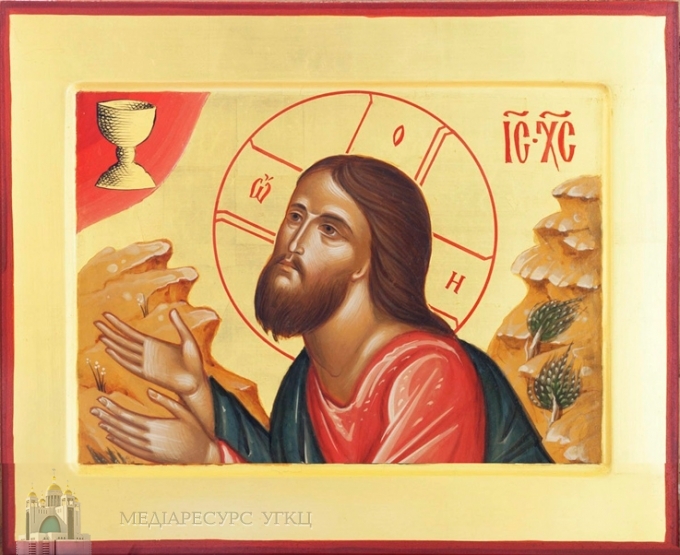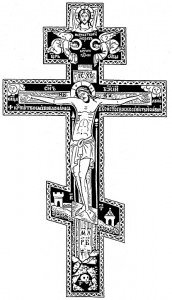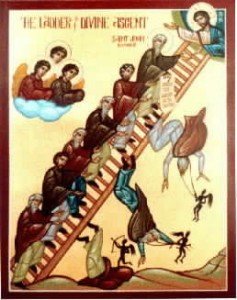Eminence and Most Reverend Bishop! Reverend, Reverend Fathers and vysokoprepodobni! Dearly beloved in Christ brothers and sisters!

Lent – a special period of the liturgical year, a spiritual awakening and cleaning. The Lord encourages us to attention and reflect on personal life, our relationship to God and neighbor; invites us to test how well we experience the historical circumstances in which we have to pass this year path of Lent.
Our relationship to God we Christians call faith. Living in complete trust in God and His dosvidchuyuchy active presence in our lives through prayer, we find in him a source of hope – become strong His power and His love vidrodzhuyemosya. To live with faith in God – means continually updated. In particular, during the Lenten journey we must endure “spiritual reform-renewal” – turning to God.
This conversion we traditionally call repentance, directing all thoughts, desires and aspirations to God, the restoration of the ability to fight evil, strengthening resistance lies. True repentance is not only deep inner nature and is not just our personal relationship with God. Just as sin spreads around us death and destruction, conversion to our Creator has the ability to beneficially affect our society. That is why the post – period conversion, penance and prayer – we call time revival, renewal and healing believer, and through it the whole society – the power and action of the Holy Spirit.
Fighting evil, falsehood and sin is a matter not only of individuals. As people able to resist aggression attacker only united, together, just personal spiritual revival of Christian life is impossible without upgrading its relations with neighbors. No real fasting and prayer without charity, as you can not love God without noticing pain neighbor. On this occasion, the Lord tells us, “That’s Fast, dating, break the shackles of injustice, to undo the yoke solved at liberty to release the oppressed, to break every yoke, his bread with the hungry to share, enter the house of the poor, the homeless, seeing naked, wear it on your brother not hide “(Isa. 58: 6-7). Like St. Augustine teaches, noting that the first step in the Lenten journey be a step towards the neighbor: “Love your neighbor and then look inside himself where this nascent love of God and see how you would be possible” (Treatise on the Gospel of John 17, 7-9).
By calling us to repentance conscience – the voice of God in our souls, our true “I”, which will meet with the light of God’s truth. Right experienced Lent strengthens this voice allows us to better hear it, not zahlushuvaly it without losing the brightness of God’s truth in our hearts and not gone astray.
However, not only a few people can zamulyuvaty his conscience and indulge in self-deception. History and reality show us that this state of flow goals of society. Therefore, every person, society also needs renovation, conversion and look at themselves in the light of Truth.
Christian love is manifested in social terms as social justice. Conversely, social injustice is both evil and falsehood and sin. That’s why the first step in a national repentance should be a revival of justice for those who are weakest, the most vulnerable and most in need. “Blessed is he that considereth the poor and needy – in hard times God will save it” (Ps. 41: 2).
The court shall cease to be valid if not looking for the truth, and the judge – when acting against God’s truth and His law.
One of the indicators of social conscience in the state is the judiciary, as evidence of the moral health of the state is a fair trial, which is the basis for a viable law of God. This Court is meeting point between God’s truth and personal and social life of the citizen. It ceases to be valid if not looking for the truth, and the judge – when acting against God’s truth and His law. Lord instructs judges words of Scripture: “Look what you’re doing, because you are doing is not for the court, as to the Lord, and he shall be with you when you judge. Suppose, therefore, will you fear the Lord: proceed with caution because the Lord our God, there lies no storonnychosty or pidkupstva “(2 Chron. 19, 5-7). Earthly judges must not forget that before God and they defendants because he calls himself Lord Judge and Final Judgment – “highest authority” – leaves himself, for his “judgment is righteous” (cf. Jn. 5, 30).
We all know that the unjust court can be an instrument of violence and reprisals against human, means of repression and neglect the dignity of the whole nation. Each wrong and injustice impressive, but wrong and injustice which people undergo where it should protect against injustice strikes and hurts much stronger and denies hope. In our country most people feel helpless just before the judiciary, as is the need for judicial reform in us or not acute.
And fast, and reforms need to self, work on yourself, which can even be painful. This year, the preparation of the Passover of the Lord will be marked scourge of war and economic hardship. Let our endurance in the struggle for freedom and a better future of their people updated through voluntary self-denial for renewal of private and public life, personal sacrifice for the victory of love over hatred.
We Christians know that the result of this reform, renewal depends not only on us, and on our first accord with God by keeping two prerequisites real fast – prayer and almsgiving. Prayer opens us to God, He invites us to act, and charity, to others and the overcoming of injustice in the world, is voluntary mortification of our evil inclinations for pilgrimage to the resurrection.
Let renewed strength of the Christian faith, hope and love gives us certainty in the inevitability of the victory of God’s justice over injustice – the victory over every enemy, internal and external, that rebels against God and the dignity of man, created in His image and likeness. “Nevertheless, brethren, rejoice, strive for excellence, pidbadoryuytesya, be of one mind, live peacefully, and the God of love and peace shall be with you” (II Cor. 13, 11).
† SVIATOSLAV
Given in Kyiv
at the Patriarchal Cathedral of the Resurrection,
the day of the Three Hierarchs: Basil the Great, Gregory the Theologian, John Chrysostom,
February 12, 2015



